 |
Index
|
Index
The significant feature of fallacious arguments
is not that they seem to be correct,
but that they can be seen to be incorrect.
Manicas and Kruger
Paul defiles the Covenant when he describes Covenant-Law as being lethal:
6 He has made us competent as ministers of a new covenant---not of the letter but of the Spirit; for the letter kills, but the Spirit gives life.
7 Now if the ministry that brought death, which was engraved in letters on stone... (2 Corinthians 3:6-7a NIV)
Paul's meaningless drivel springs from his spiritual blindness, his qualifications as a priest in the synagogue of Satan (cf: Rev. 2:9; Rev. 3:9), his negligence, his incompetence and his arrogance! He knows nothing of the Mosaic Covenant nor its Messianic amendment. Having failed to correct his misunderstanding of the Covenant, he reverts to the authority of the covenant of Death taught him by the Pharisees and experts in the law.

The structure and functions of the Mosaic Covenant are best-illustrated with a children's schematic:
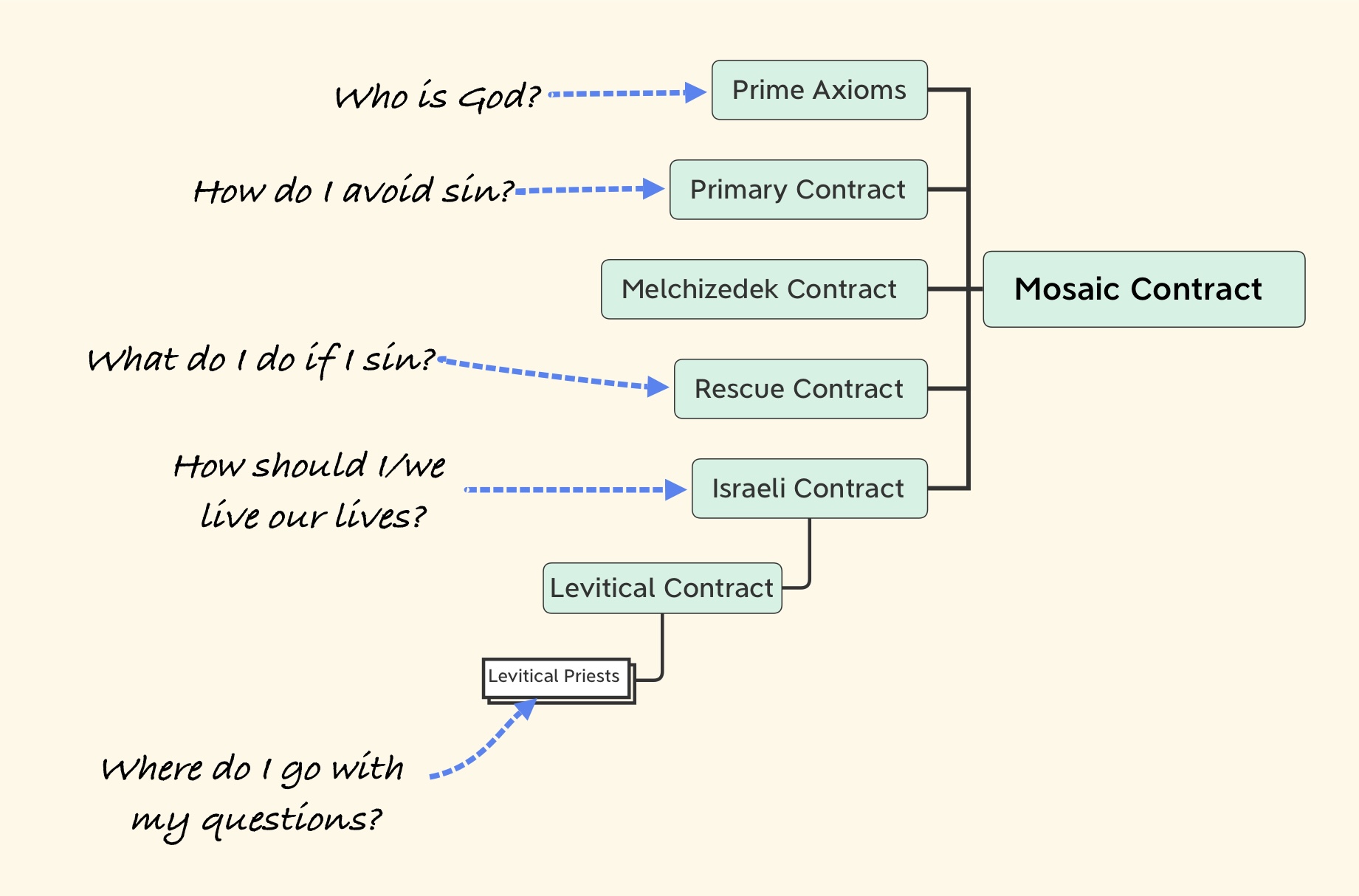
Fig.1: Mosaic Covenant - children's schematic.
An overview of the Mosaic Covenant:

The Covenant, in itself, is an abstract container. It becomes instantiated with the addition of component contracts. Thus, the content can change across the timeline as components are added, dropped, or amended:
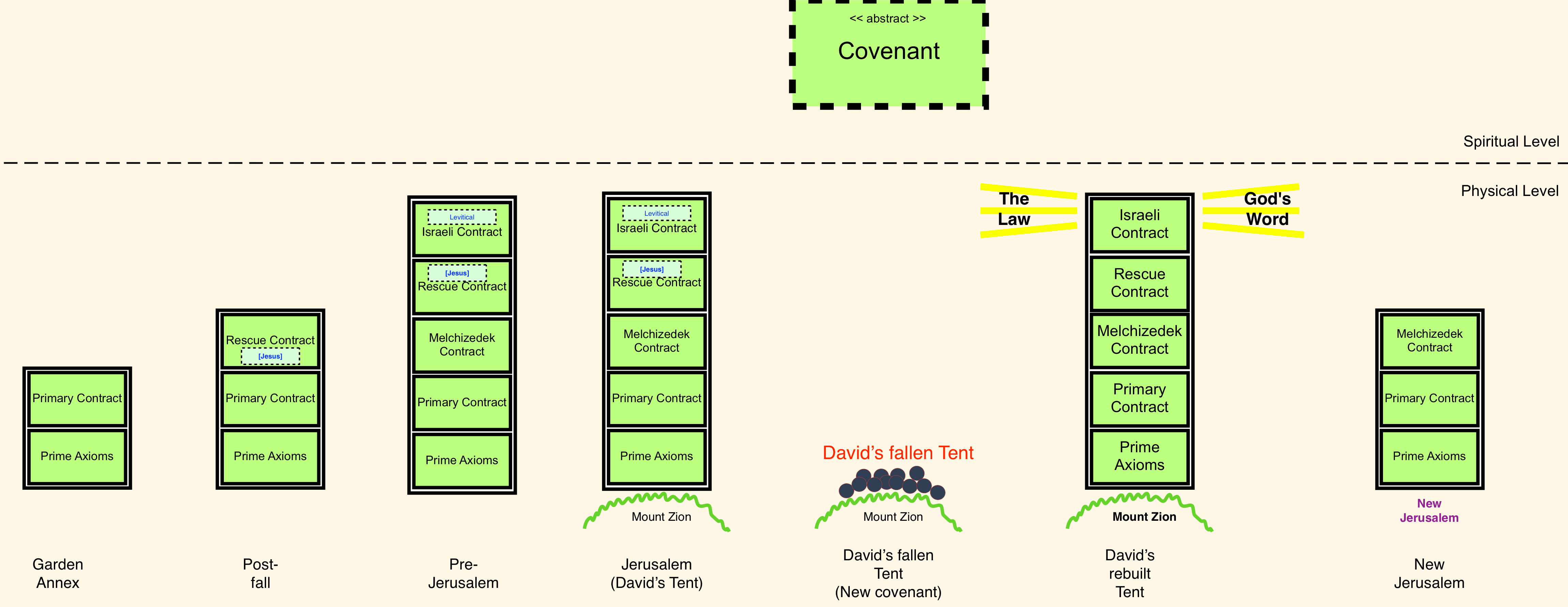
Fig.2: Changes to the Covenant across the timeline.
Because the Covenant is a container which is also an abstract contract, it acts as the interface to the various components:
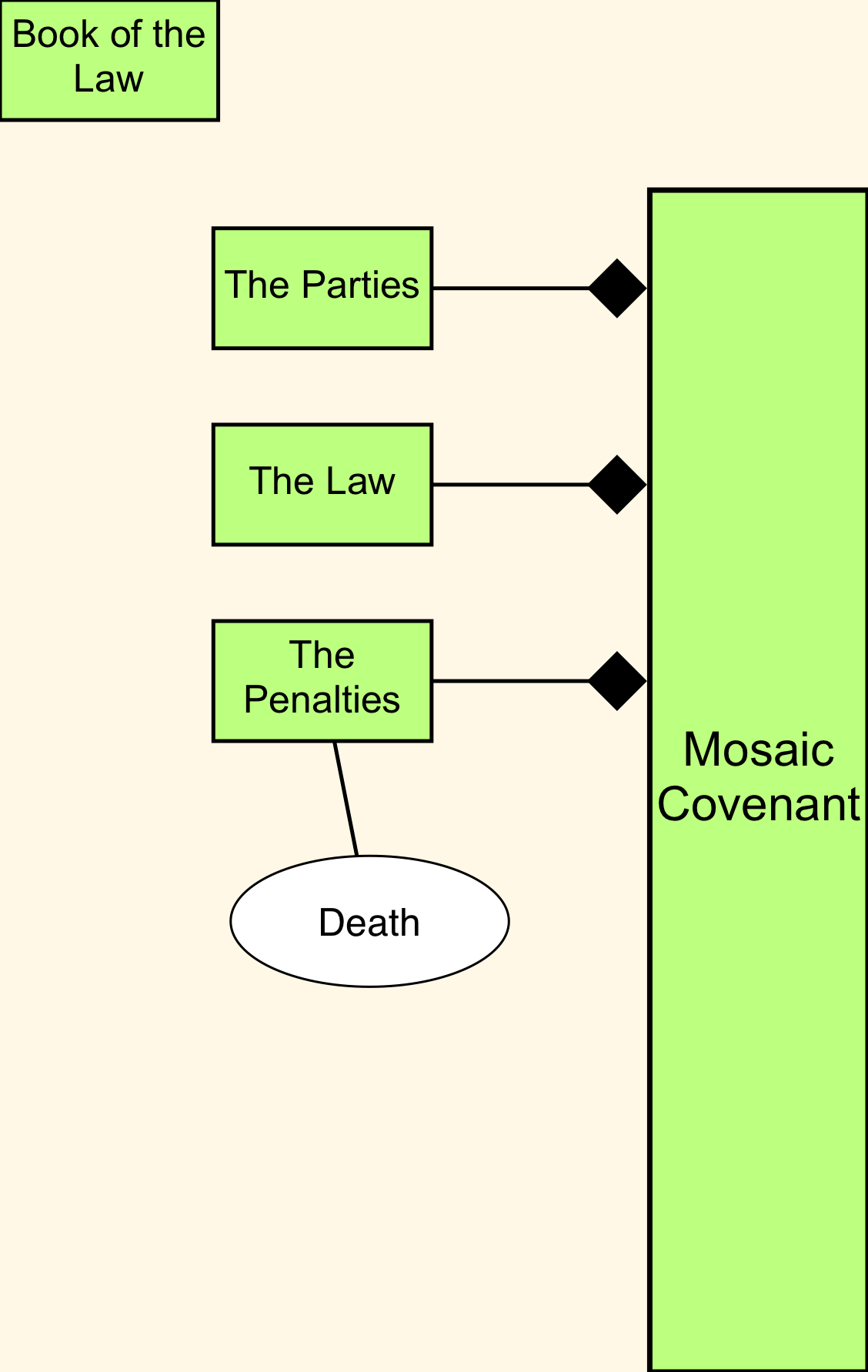
Fig.3: Mosaic Covenant - the interface
The Covenant container has full and unrestricted access to its component contracts - illustrated here with a schematic of 'The Law':
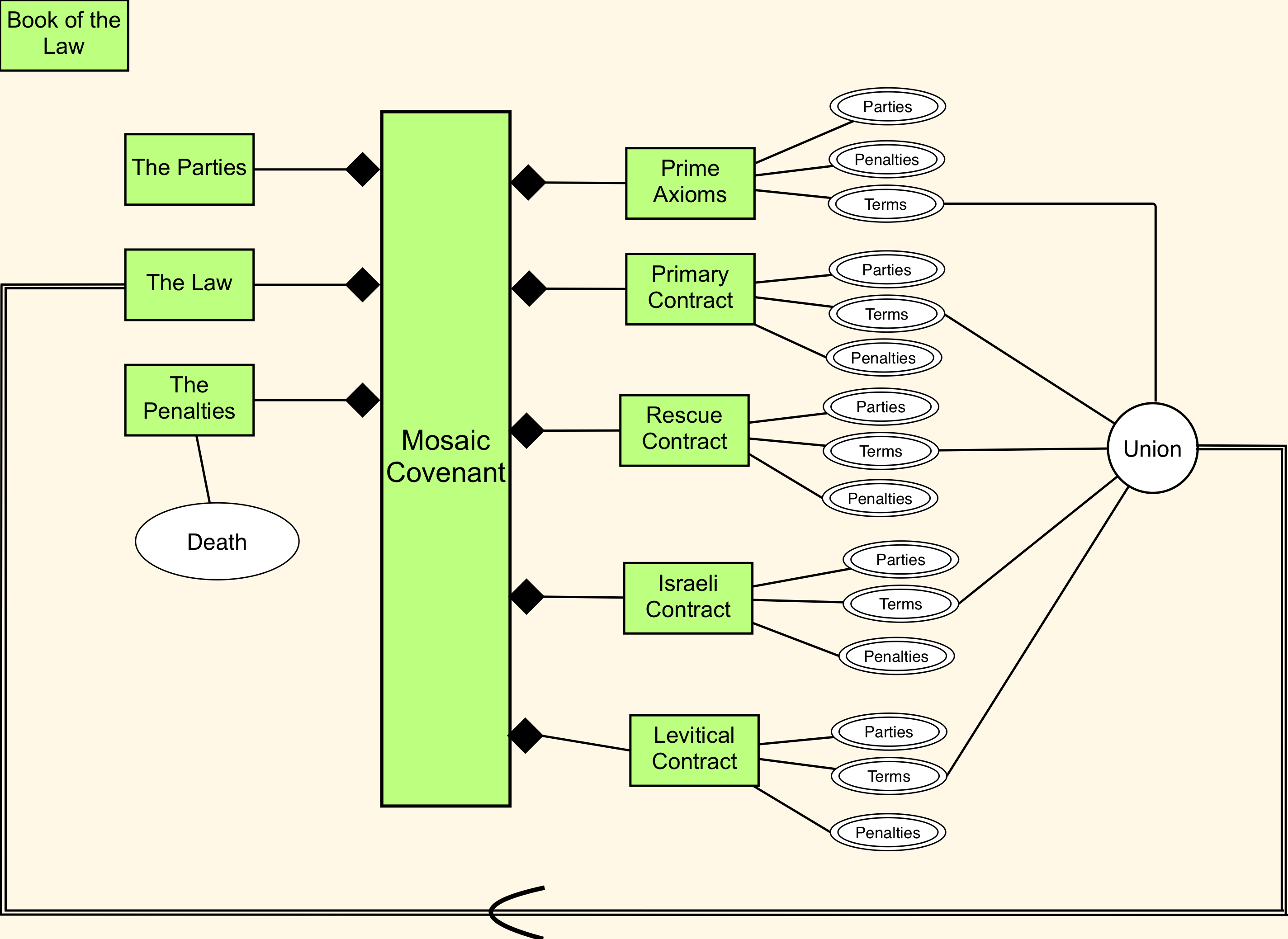
Fig.3: Mosaic Covenant - the scope of the Law.
The Book of the Law is, perhaps, better referred to as the 'Book of Teaching', because it contains the Scriptures (as they exist at that point on the timeline). The Book of Teaching is more than the Book of Mosaic Law, since it contains subsequent information and updates to the Covenant, including the Messianic Update.

Paul sees rules and regulations, the moralisation of his teachers:
Mark 7:1-23 (qv).
"Woe to you, teachers of the law and Pharisees, you hypocrites! You give a tenth of your spices---mint, dill and cummin. But you have neglected the more important matters of the law---justice, mercy and faithfulness. You should have practiced the latter, without neglecting the former. [24] You blind guides! You strain out a gnat but swallow a camel. (Matthew 23:23-24 NIV84)
Paul sees neither the structure nor the scope of the Covenant.
Neither does Paul see Jesus in the 'old covenant', as he calls it (2 Cor. 3:14), because he fails to understand the representation of Jesus in the Mosaic Covenant Contract.

As far as qualifications go, Paul claims 'expert' knowledge and status:
[3] "I am a Jew, born in Tarsus of Cilicia, but brought up in this city. Under Gamaliel I was thoroughly trained in the law of our fathers and was just as zealous for God as any of you are today." (Acts 22:3 NIV)
[14] I was advancing in Judaism beyond many Jews of my own age and was extremely zealous for the traditions of my fathers. (Galatians 1:14 NIV)
[Essay: Acceptance of Paul's claims to authority, predisposes to belief in the truth of his dogma.]
Yet what did Jesus say of the law and traditions of the Jewish fathers?
[8] "You have let go of the commands of God and are holding on to human traditions.” (Mark 7:8 NIV)
As for the Pharisees and teachers of the law, Jesus attacks them at length with oil of vitriol:
[33] “You snakes! You brood of vipers! How will you escape being condemned to hell?" (see Matthew, chapter 23)
And in the Book of Revelation Jesus mentions the membership of the synagogue of Satan:
[9] "I know your affliction and your poverty, even though you are rich. I know the slander on the part of those who say that they are Jews and are not, but are a synagogue of Satan. (Revelation 2:9 NRSV)
[9] I will make those of the synagogue of Satan who say that they are Jews and are not, but are lying-I will make them come and bow down before your feet, and they will learn that I have loved you. (Revelation 3:9 NRSV)
The tragedy is that Paul was so blind, incompetent, and negligent, that he never retrained in the Covenant as Moses understood it and which was later amended by Jesus. Days spent discussing Jesus' words with The Twelve would have avoided the disaster of the new-covenant doctrine. Paul had a golden opportunity to get to know and understand the Covenant - and just threw it away...

There may be those who would exonerate Paul on the grounds that today's Gospels had not yet been written and were therefore not available. This, however, does not fly, because Paul had access to far more than today's Gospels (John 21:25). Having access to The Twelve, Paul had access to all their knowledge and recollections of events - an advantage not available to us todoy! So what does Paul do? On his own admission he minimises contact with The Twelve, thereby ensuring his continued ignorance; at the same time, he denies himself the retraining which would have made him an expert in the Covenant:
[40] A student is not above his teacher, but everyone who is fully trained will be like his teacher. (Luke 6:40 NIV)
Paul, on his own admission, deliberately refuses God's retraining in the Covenant:
[15] But when God, who set me apart from birth and called me by his grace, was pleased [16] to reveal his Son in me so that I might preach him among the Gentiles, I did not consult any man, [17] nor did I go up to Jerusalem to see those who were apostles before I was, but I went immediately into Arabia and later returned to Damascus.
[18] Then after three years, I went up to Jerusalem to get acquainted with Peter and stayed with him fifteen days. [19] I saw none of the other apostles---only James, the Lord's brother. (Galatians 1:15-19 NIV)
Paul blatantly and unashamedly dismisses The Twelve. In his arrogance, Paul undoubtedy sees them as uneducated, having litle knowledge of the Covenant. Such was the general opinion of the rulers, elders, and scribes:
[5] The next day their rulers, elders, and scribes assembled in Jerusalem, [6] with Annas the high priest, Caiaphas, John, and Alexander, and all who were of the high-priestly family.
...
[13] Now when they saw the boldness of Peter and John and realized that they were uneducated and ordinary men, they were amazed and recognized them as companions of Jesus. (Acts 4:5-6,13 NRSV)
Paul fails to see The Twelve for who they really are:
[14] The wall of the city had twelve foundations, and on them were the names of the twelve apostles of the Lamb. (Revelation 21:14 NIV)
Paul doesn't even see them as companions of Jesus - compare with the leaders mentioned in Acts 4:5-6,13 NRSV, above.
Yet, significantly, for all his self-aggrandisement, Paul's name will not appear on the foundations of the New Jerusalem.
It is ironic that the one whose writings Paul discredited will be Paul's accuser on the Day of Judgement:
[45] "Do not think that I will accuse you before the Father; your accuser is Moses, on whom you have set your hope. [46] If you believed Moses, you would believe me, for he wrote about me. [47] But if you do not believe what he wrote, how will you believe what I say?" (John 5:45-47 NRSV)
[Dissertation: Paul's authority, education, qualifications, and competence.]
While I cannot condemn Paul enough for his incompetence, negligence, and evil doctrine - all of which are fair game - I have no desire to engage in an ad hominem attack on the man himself.
It strikes me that the Lord chose him knowing that he'd fail and would trash the Covenant (see Eze. 21:25-27). As for Paul's successes, he certainly spread the word about Jesus! The result is that the new-covenant church is no better than that of the House of Desolation.
However, that is not strictly true. For, when the Plumb-Line is applied to both sets of doctrine, Paul's doctrine is found to be infinitely more evil: attribution to the Lord Spirit necessitates inclusion of new-covenant doctrine in the list of Blacklistable offences.
Parity was important to the Lord. So he ensures parity between Jews and Gentiles by selecting Paul. As was remarked elsewhere with regard to parity (Zech. 12:7), neither party can lord it over the other.
Then, again, the Lord had promised to reduce David's Tent to a complete and utter ruin:
[25] "You wicked, unholy ruler of Israel, your day, the day of your final punishment, is coming. [26] I, the Sovereign LORD, have spoken. Take off your crown and your turban. Nothing will be the same again. Raise the poor to power! Bring down those who are ruling! [27] Ruin, ruin! Yes, I will make the city a ruin. But this will not happen until the one comes whom I have chosen to punish the city. To him I will give it. (Ezekiel 21:25-27 GNT)
Perhaps now would be a suitable time for the rebuilding of David's fallen Tent. The need and the urgency are obvious to anyone who cares to examine the evidence. And this is something the Lord has promised to carry out:
[11] "In that day I will restore David's fallen tent. I will repair its broken places, restore its ruins, and build it as it used to be, [12] so that they may possess the remnant of Edom and all the nations that bear my name," declares the Lord, who will do these things. (Amos 9:11-12 NIV)
The Restoration of David's fallen Tent will be key in helping the faithful take a stand against the Beast and the Awful Horror. Necessarily, therefore, failure to uphold and participate in the restoration will confirm a lack of love towards neighbours whose names we have yet to know. To exhibit this lack of love amounts to breaking the second Great Commandment. See also Two Abstract Rules.
The unknown writer defiles the Covenant as being:
Inadequate:
But in fact the ministry Jesus has received is as superior to theirs as the covenant of which he is mediator is superior to the old one (Hebrews 8:6a NIV)
Based on inadequate promises:
But in fact the ministry Jesus has received is as superior to theirs as the covenant of which he is mediator is superior to the old one, since the new covenant is established on better promises. (Hebrews 8:6 NIV)
The unknown writer is lying through his teeth, because Jesus was represented in the Mosaic Covenant! Note also:
[25] He said to them, "How foolish you are, and how slow of heart to believe all that the prophets have spoken! [26] Did not the Christ have to suffer these things and then enter his glory?" [27] And beginning with Moses and all the Prophets, he explained to them what was said in all the Scriptures concerning himself. (Luke 24:25-27 NIV)
Faulty:
[7] For if that first covenant had been faultless, there would have been no need to look for a second one. (Hebrews 8:7 NRSV)
To state that the 'old' Covenant was faulty, is to break the Prime Axioms.
Obsolete, ageing, and vanishing:
[13] In speaking of "a new covenant," he has made the first one obsolete. And what is obsolete and growing old will soon disappear. (Hebrews 8:13 NRSV)
Micah, however, gives the lie to the unknown writer's words (He. 8:13):
[1] In the last days the mountain of the Lord's temple will be established as chief among the mountains; it will be raised above the hills, and peoples will stream to it.
[2] Many nations will come and say, "Come, let us go up to the mountain of the Lord, to the house of the God of Jacob. He will teach us his ways, so that we may walk in his paths."
The law will go out from Zion, the word of the Lord from Jerusalem. (Micah 4:1-2 NIV)
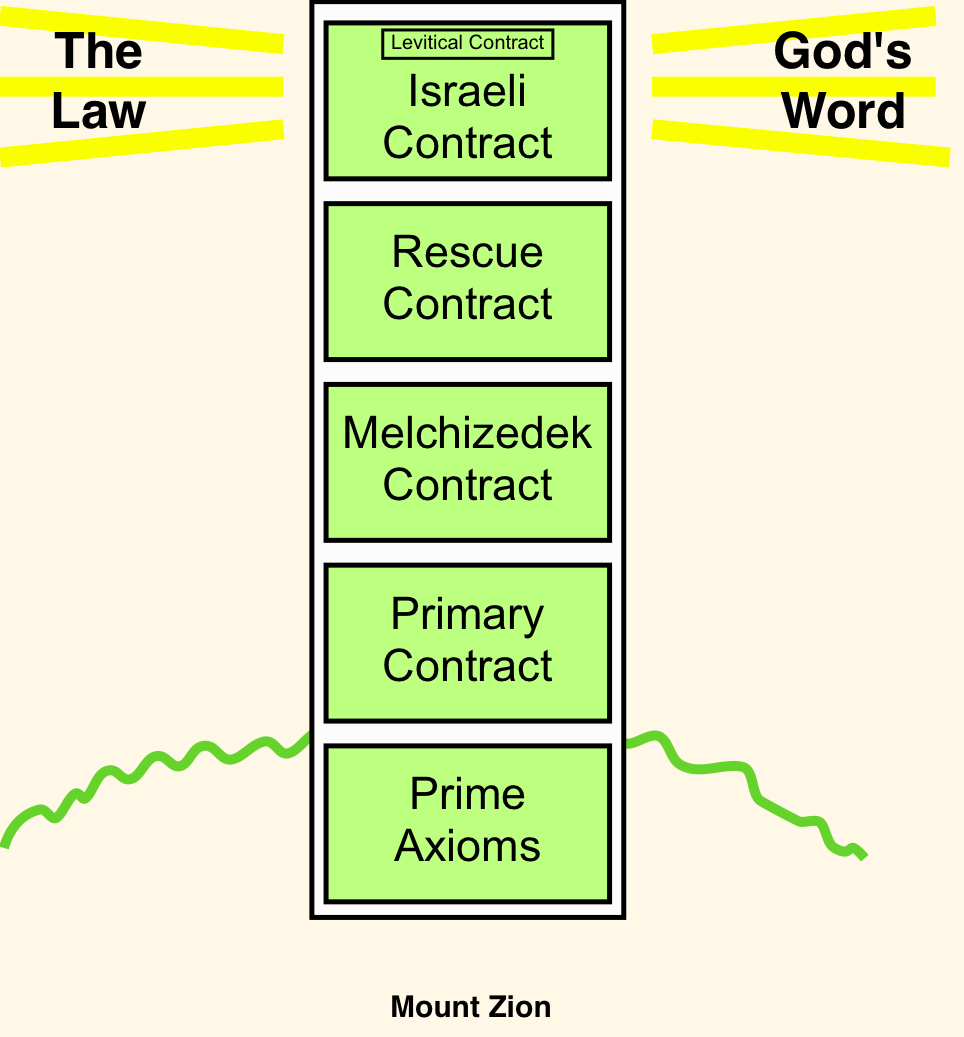
'In the last days' - Micah 4:1-2.

The unknown writer teaches that the mature train themselves to distinguish good from evil:
[11] We have much to say about this, but it is hard to make it clear to you because you no longer try to understand. [12] In fact, though by this time you ought to be teachers, you need someone to teach you the elementary truths of God's word all over again. You need milk, not solid food! [13] Anyone who lives on milk, being still an infant, is not acquainted with the teaching about righteousness. [14] But solid food is for the mature, who by constant use have trained themselves to distinguish good from evil. (Hebrews 5:11-14 NIV)
Verse 14 accounts for the direction taken by a new-covenant church which has annulled the Law and obedience to it. Compare with Moses, who said:
[25] And if we are careful to obey all this law before the Lord our God, as he has commanded us, that will be our righteousness. (Deuteronomy 6:25 NIV)
Paul's new-covenant gang train themselves to recognise evil; whereas the righteous rely on the Scriptures and Covenant to enquire after the Lord's definitions of right and wrong in order that they might obey Him.

[Dissertation: The authority, education, qualifications, and competence of the unknown writer to the Hebrews.]
[Analysis: Hebrews 5:11-14]
[Analysis: The Epistle to the Hebrews, by FF Bruce.]
[Essay: Who taught the unknown writer? Discuss the implications.]
[Dissertation: Denigration of the Messianically amended Covenant by the new-covenant church.]
[9] "Then you will be handed over to be persecuted and put to death, and you will be hated by all nations because of me.
[10] At that time many will turn away from the faith and will betray and hate each other, [11] and many false prophets will appear and deceive many people. (Matthew 24:9-11 NIV)
In view of Jesus' warnings about the rise in betrayals and false prophets as the End of the Age approaches, how can people who are scared, on the run, and being acively hunted, hope to quickly identify those whose deceit would lead them into sin and error?
A good grounding in Moses' Covenant and the Messianic Amendment will be essential! Jesus Himself spoke about this:
[46] If you believed Moses, you would believe me, for he wrote about me. [47] But since you do not believe what he wrote, how are you going to believe what I say?" (John 5:46-47 NIV)
This grounding will enable people to go directly to what these fraudsters are saying, and to reject it. Do what Jesus does: know and understand the Scriptures (as opposed to the Bible), as this will enable a swift assessment of what others may be saying:
[29] Jesus replied [to the Sadducees], "You are in error because you do not know the Scriptures or the power of God. (Matthew 22:29 NIV)
Because the Lord totally rejects that which is imperfect (Prime Axioms), should error be discovered in what is being proclaimed, then their words may be consigned to the trash in their entirety. Job done!
[Essay: The Scriptures as Plumb Line and Measuring Line.]
Stay safe!
Version: 2025-01-28